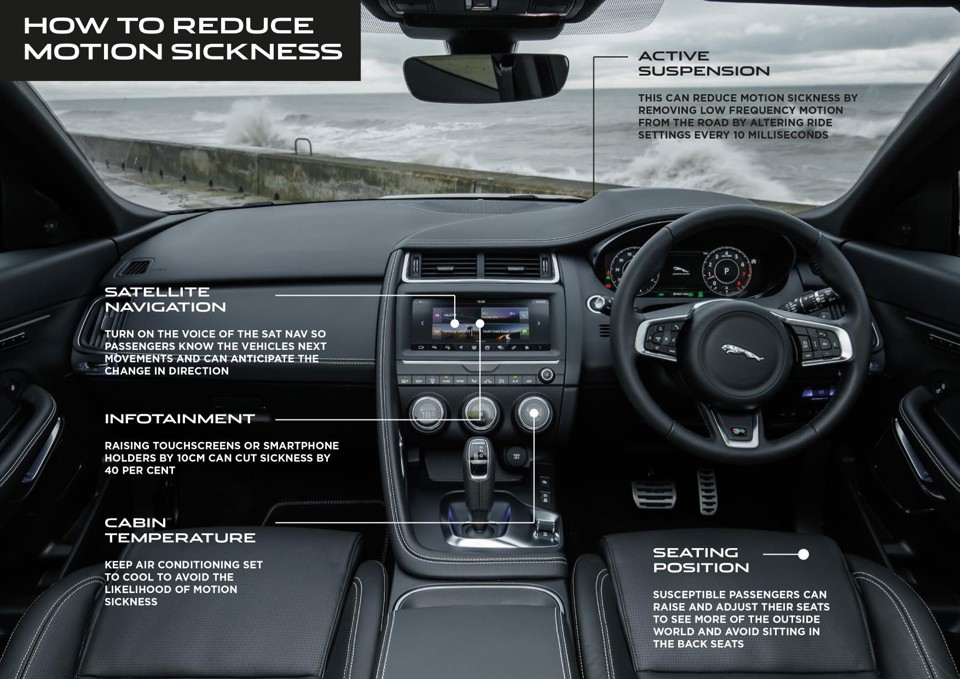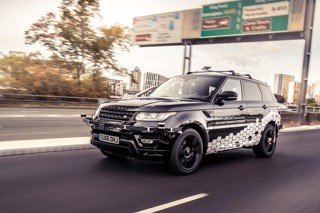Jaguar Land Rover has developed a technology that will be able to tell if vehicle occupants are feeling unwell and adjust settings to combat motion sickness.
The technology, which will be available in future vehicles, uses an algorithm that generates a ‘wellness score’ for each passenger.
This can be used to automatically personalise a vehicle’s driving and cabin settings to reduce the effects of feeling car sick by 60%, says the manufacturer.
Jaguar Land Rover has already collected 15,000 miles of motion sickness data and tested the effects caused by performing a task while in transit, such as checking emails.
This has enabled the creation of a baseline driving style for self-driving vehicles to work towards, minimising the need for steering corrections and therefore the risk of motion sickness while passengers work or relax.
Spencer Salter, wellness technology researcher at Jaguar Land Rover said: “As we move towards an autonomous future where occupants will have more time to either work, read or relax on longer journeys, it’s important we develop vehicles that can adapt to reduce the effects of motion sickness in a way that’s tailored to each passenger.”
Motion sickness is often caused when the eyes observe information that is different from what is sensed by the inner ear, skin or body forces – commonly when reading.
The ‘wellness score’ calculates how susceptible individual drivers and passengers are to feeling car sick, using biometric sensors that record physiological signals. Combining this with motion and dynamics data, the vehicle will reliably know when a passenger or driver is becoming motion sick – before they do.
Steve Iley, Jaguar Land Rover chief medical officer, added: “This cutting-edge research has created a solution that, with its solid scientific foundation, can make travelling enjoyable, regardless of your susceptibility to motion sickness.
“As a parent of young children, who are most susceptible to car sickness, I am particularly excited by the benefits this research can have in making long journeys comfortable and stress-free for families.”
The first phase of the research completes this month and JLR said the findings are already being implemented into further projects across research.





















Login to comment
Comments
No comments have been made yet.